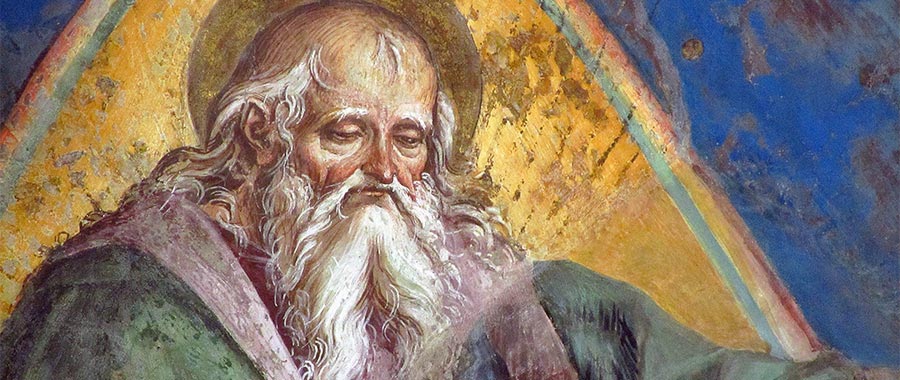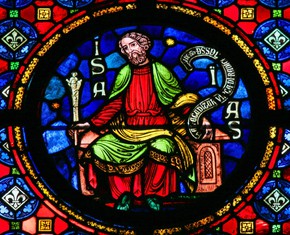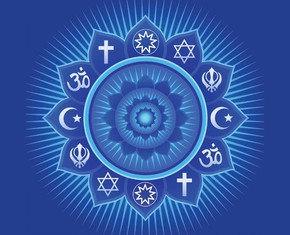The views expressed in our content reflect individual perspectives and do not represent the authoritative views of the Baha'i Faith.
Throughout the annals of recorded history, spanning diverse civilizations, a common conception of a deity reigned: a bearded patriarch who emerged from male-dominant societies.
Long before the Abrahamic Faiths came about, the Egyptian civilization had Amun-Ra, the Greeks had Zeus, and the Nordic cultures worshipped Odin. Preceding the emergence of monotheism, these patriarchal, father-figure gods represented the lord of lords and the leader of the other gods and goddesses. Often depicted as a wise old man with a long beard, the all-powerful patriarchal gods threw thunderbolts and uprooted trees in their wrath.
Even during the dispensations of the founders of the monotheistic Abrahamic Faiths and non-Abrahamic Faiths, much of humanity continued to understand God as a father figure. In Judaism God is known by many Names such as Lord of Hosts, Jehovah, Yahweh, and Glory of God. Interestingly, one of the Names of God in Judaism is the Everlasting Father:
Do you thus repay the Lord, O foolish and unwise people? Is not He your Father who has bought you? He has made you and established you. – Deuteronomy 32:6.
Even in Christianity, many conceive of God as “The Everlasting Father,” and of Jesus as the Son of God:
See what great love the Father has lavished on us, that we should be called children of God! And that is what we are! The reason the world does not know us is that it did not know him. – 1st John 3:1.
This conception of God goes beyond the Abrahamic Faiths. Many versions of the Vedic Faiths, Hinduism and Buddhism, also portray the Lord as a patriarch. In the case of Hinduism God is often called Brahma—one of the many masculine deities the Faith recognizes.
This long-imagined tradition of a patriarchal God has followed us even into modernity, and impelled a rebellion and a slogan: “Smash the patriarchy!” The mental image of a harsh male deity, so antithetical to humanist and feminist values, now seems repressive, rigid and inhumane.
The Baha’i teachings, however, view this patriarchal God as a relic of a bygone age, and ask us all to abandon the entire conception:
To every discerning and illuminated heart it is evident that God, the unknowable Essence, the Divine Being, is immensely exalted beyond every human attribute, such as corporeal existence, ascent and descent, egress and regress. Far be it from His glory that human tongue should adequately recount His praise, or that human heart comprehend His fathomless mystery. He is, and hath ever been, veiled in the ancient eternity of His Essence, and will remain in His Reality everlastingly hidden from the sight of men. – Baha’u’llah, Gleanings from the Writings of Baha’u’llah, p. 46-47.
Baha’is do not perceive God as a literal father, but instead as fulfilling the metaphorical role of a father figure to humanity—in that God raises us, protects us, and takes care of us in similar ways to a physical father. The patriarchal image, then, is just that—an image, not a reality. All human conceptions of God, the Baha’i teachings say, fall far short of the unknowable essence of His being. Even our language reveals its poverty and inadequacy when we must use pronouns like “He” or “She” in referring to the Creator, whose reality is incomprehensible and cannot be conceived by humans or anything seen or unseen:
Nature in its essence is the embodiment of My Name, the Maker, he Creator. Its manifestations are diversified by varying causes, and in this diversity there are signs for men of discernment … – Baha’u’llah, Tablets of Baha’u’llah, p. 142.
The Baha’i teachings ask us to rise above all incomplete and faulty human perceptions of the one Creator, and evolve our understanding from a physically tangible and archaic depiction of a patriarchal father figure to a Deity we can only begin to approach through attempting to understand His spiritual attributes of love, kindness and compassion, just to name a few. Though we cannot know the Unknowable Essence, we can understand to a limited degree His names and attributes—the spiritual qualities we all try to develop in our own hearts and souls:
By Thy glory! Every time I lift up mine eyes unto Thy heaven, I call to mind Thy highness and Thy loftiness, and Thine incomparable glory and greatness; and every time I turn my gaze to Thine earth, I am made to recognize the evidences of Thy power and the tokens of Thy bounty. And when I behold the sea, I find that it speaketh to me of Thy majesty, and of the potency of Thy might, and of Thy sovereignty and Thy grandeur. And at whatever time I contemplate the mountains, I am led to discover the ensigns of Thy victory and the standards of Thine omnipotence. –Baha’u’llah, Prayers and Meditations, p. 272.
Upon the reality of man, however, He hath focused the radiance of all of His names and attributes, and made it a mirror of His own Self. Alone of all created things man hath been singled out for so great a favor, so enduring a bounty. – Baha’u’llah, Gleanings from The Writings of Baha’u’llah, pp. 65-66.
















Comments
Sign in or create an account
Continue with Googleor